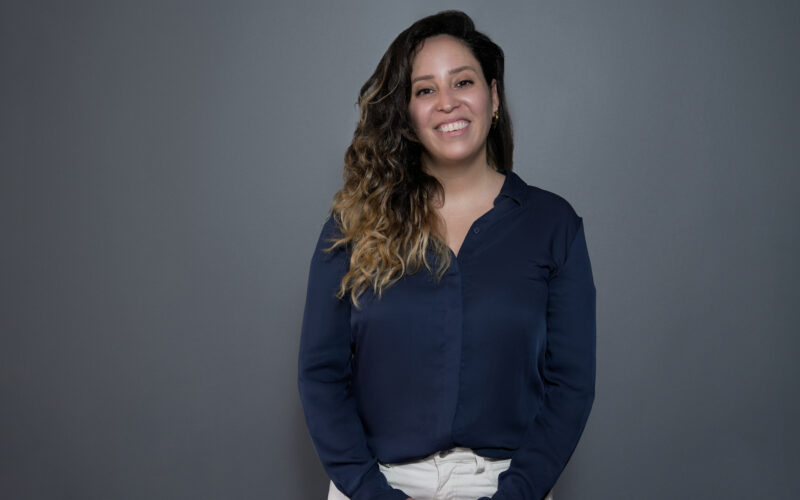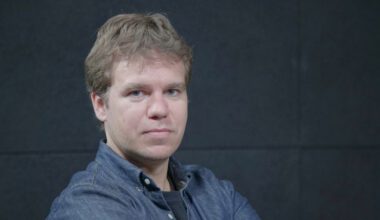WeXchange selected 10 winners of the WeXchange Women STEMpreneurs Competition 2024.
WeXchange is an initiative of the IDB Lab, the innovation and venture arm of the Inter-American Development Bank, to unlock growth opportunities for women entrepreneurs in STEM in Latin America and the Caribbean. The WeXchange Women STEMpreneurs Competition 2024, which selected 10 winners, was conducted with the support of the Women Entrepreneurs Finance Initiative (We-Fi), and AVP Ventures.
Since 2013, WeXchange has hosted annual activities across Latin America, offering regional entrepreneurs access to mentors, training sessions, and the chance to compete in a Pitch Competition.
As part of a series of interviews with the winners, starting with Madeleine Valderrama, CEO and co-founder of Bruna. Madeleine shares her journey from industrial engineering to entrepreneurship, highlighting how her experiences in the fishing industry and her partnership with co-founder Ismael Valenzuela shaped Bruna’s vision.
From Industrial Engineering to entrepreneurship
I have a bachelor’s degree in Industrial Engineering and a master’s in technology from the Universidad de Chile. I started my career in the fishing industry, working on production plants and helping redesign them which sparked my interest in optimizing processes, I was fascinated by how machinery and facilities reflected human creativity.
I met my co-founder Ismael Valenzuela on our first day of university and have been working together for almost 20 years. While I pursued a managerial career in the corporate world, Ismael always leaned toward entrepreneurship.
While working in a corporate role in the fishing industry, I worked on redesigning production processes for a fishing and salmon company. My focus was on integrating new technologies, automating tasks, and streamlining operations.
My experience directly inspired Bruna. Initially, we tackled fishmeal blending, a challenge where quality inconsistencies led to financial losses. My master’s thesis focused on this problem and laid the groundwork for our first product.
After selling everything and traveling for a year, I returned with a renewed outlook and realized I no longer fit into the corporate system. Ismael encouraged me to leverage my industry knowledge and his development and math skills to create something of our own. That’s how Bruna, initially called AltumLab, was born.
Bruna’s evolution: Expanding beyond fishmeal
Our first product was an intelligent recipe algorithm optimizing blends to meet quality standards while reducing waste and costs. During our time at Imagine Lab, we realized that challenges extended beyond fishmeal to industries like food and mining. A turning point came when a Chilean mining executive highlighted that our solution focused on reprocessing efficiency, and compensating for existing inefficiencies. He challenged us to optimize the raw material blending at the beginning of the process.
This led us to discover another challenge: information availability. Sampling and lab analysis could take hours or even days in continuous processes, rendering the blending suggestions irrelevant as the raw material had already been used. Bruna now utilizes artificial intelligence to predict the quality of incoming raw materials with a lead time of four, eight, or even twelve hours. This allows for effective blending plans, increasing material value and recovery rates.
Currently, we’re working with metal and non-metal mining, agriculture, food, and manufacturing industries. While large corporations were our initial focus due to their data volume and financial impact, we are now expanding to support smaller businesses.
Success story: Transforming Peru’s sugarcane industry
In Peru’s sugarcane industry, a client faced declining yields due to reduced plant growth and sugar concentration. Using historical data, soil quality, irrigation practices, and agro-climatic information, our model identified that radiation changes over four years had impacted crop performance.
Bruna now predicts sugar concentration 90 days before harvest, enabling precise fertilization and irrigation adjustments. This proactive approach has helped the client optimize resources and improve outcomes.
Sustainability
Sustainability is integral to our work. Initially, we framed our impact around cost reductions, such as saving water and electricity. Today, clients are increasingly focused on environmental outcomes.
Bruna has helped reduce water usage in agriculture, transition to natural fertilizers, cut electricity consumption in mining, and minimize steam use in pulp production—contributing to lower carbon emissions across industries.
Next steps for Bruna
We plan to raise our next funding round next year to accelerate our commercial growth. Central America is a key target market, offering opportunities in extractive industries and agriculture, especially with a large number of micro-farmers and limited access to technology.
Connecting with Bruna
For more information, visit bruna.ai or contact Madeleine directly at mvalderrama@bruna.ai.



